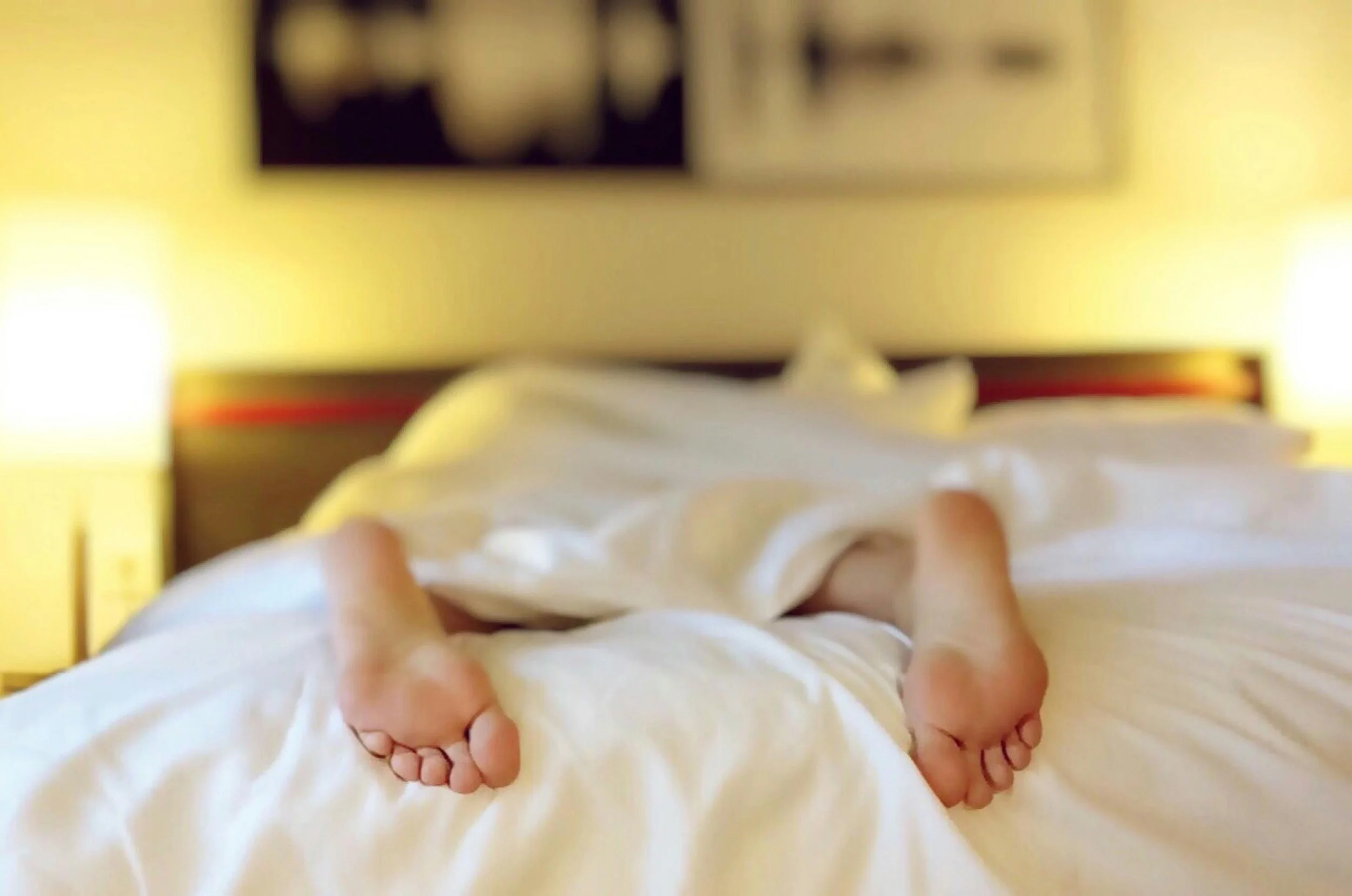Endless deadlines at work, financial woes, family strife, relationship hurdles – our lives are full of stress. But not all stress is bad. Some stress can be good for us, in fact positive forms of stress called ‘Eustress’ encourage the growth of new neurons and promote higher levels of achievement and productivity. Good to know, as aiming for a stress-free life would be like reaching for the stars! Good stress helps prepare the body for what it needs to do; a surge of adrenalin before a presentation, to achieve a personal best in the gym or rushing about to prepare for a family event. However, it’s well known that too much bad stress, especially when it disrupts our sleep, can become a catalyst for ill health.
Undoubtedly, one of the most common adult sleep issues that our clients report is stress causing sleeplessness, teamed with lack of sleep increasing stress; a vicious cycle swiftly escalating to chronic stress and insomnia.
A recent study in UAE by a leading hotel chain Premier Inn, studied the sleeping habits of 950 UAE residents, aged between 18 and 65. Of those studied, 48% stated stress prevented them from achieving the recommended 7-9 hours per night of sleep. Another worrying statistic revealed that 40% of respondents sleep less than 6 hours per night, which could amount to over 18 hours per week of insufficient sleep. It’s become such a huge issue that many employers work closely with skilled sleep consultants, to support and guide their staff to help improve their sleep quality and wellbeing, thereby improving productivity, creativity and employee retention.

How Chronic Stress Impairs Sleep
So how does stress affect our sleep? Sleep is critical to healthy cognitive functioning. A poor night’s sleep makes us cranky, emotional, reduces reaction times and causes memory impairment, making a bad situation worse.
To fully understand the link between stress and struggling to sleep, it’s helpful to understand how the body initiates sleep. It’s partly to do with the normal production and release of cortisol, a hormone that keeps us awake, engaged and ready for the day.
Thanks to the body’s circadian rhythm (or internal clock), cortisol naturally peaks in the morning and declines later in the day, hitting its low point late in the evening. As it reduces, calming and sleep-initiating hormones and neurotransmitters like melatonin begin to rise. A process known as sleep pressure also factors in initiating sleep. Sleep pressure centres around the chemical adenosine, which naturally builds up in the brain during the day. The more adenosine that builds, the more tired you become, and the harder it is to stay awake. A great example is nodding off whilst watching TV before you’ve reached the bed!
Most have heard of the term ‘fight-or-flight’. During fight-or-flight, the body kicks into ‘high alert’ mode, increasing blood pressure and adrenaline. Adrenaline released also informs the body to keep cortisol levels high, which keeps our brain hyper-alert too; neither being conducive to relaxation – which is essential preparation for a good night’s rest. The more chronically stressed you are, the more your body will keep the adrenalin flowing, the more difficult you will find it to relax, and the less you are likely to be able to sleep well.

Breaking The Cycle of Poor Sleep & Stress
Habits to support better sleep and reduce stress:
- Create a calm sleeping environment – make your bedroom a sanctuary to encourage relaxation. Overnight your room should be dark so use dim lights as you prepare for bed. Many people find white noise or gentle music beneficial when shutting down and drifting off.
- Caffeine – for all coffee fans out there, you needn’t give up what you love, but if you struggle to fall asleep do consider switching to decaffeinated coffee, herbal tea and just consuming caffeinated drinks before noon.
- Take a warm shower or bath – this not only helps with relaxing, but hugely supports de-stressing. It reduces body temperature too, which helps us drift off faster.
- Put screens to bed early – we all know our devices engage us which doesn’t support relaxation; doomscrolling and revenge bedtime procrastination will contribute to anxiety and interfere with the body’s circadian rhythm.
- Meditation – don’t knock it until you’ve tried it! It’s a proven strategy for treating insomnia. Whether you find a great practice online or download an app such as Calm, letting thoughts go and focusing on being grounded can have a huge positive impact on slowing down the brain and body for bed.

Extra’s to trial and test for impact:
- Reduce stress with movement – when you begin recognising feelings of stress, one simple solution is to move. Standing alone is beneficial. Walking is a great all-round exercise for body and mind especially when outside in nature. When the weather is too hot, going up and down stairs at home or in the office is a useful alternative.
- Snack time! – when stressed, your body uses glycogen stores in your liver as fuel for ‘fleeing’; part of the fight-or-flight response. You can experience a drop in blood sugar and maybe a headache, as a result. When your body runs out of glycogen it senses you are starving, a noticeable stressor. So, grab a healthy snack and see if that helps.
- Hug it out! – oxytocin, also known as the love hormone, can be released when we cosy up to our loved ones, be it family or even our four-legged friends. Research has shown that hugging can reduce or stop a person’s stress response and help lower cortisol levels. Bring on the cuddles!
Feeling less stressed takes time, there’s no quick fix as it’s important to review all factors causing the stress. If you have concerns about poor sleep, a sleep consultant can provide specialist guidance and the best strategies to suit you. Get in touch with the Sweet Dreams team for more details on overcoming sleep issues.



